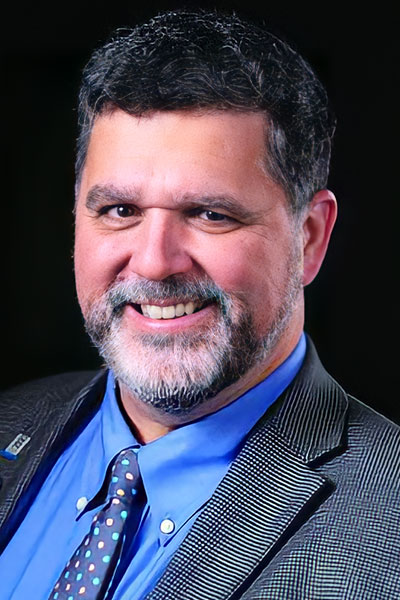
Navigating the health care system alone can be a stressful experience at the lowest levels of care. But in settings like the ICU, it becomes even more important to keep patients and their loved ones together and engaged in decisions.
“The ICU is an intensive place by its definition and can induce a lot of anxiety in patients. Having families there can alleviate the burden to the patient,” said Christopher Carroll, MD, FCCP. “In addition, families are invested in the treatment of the patients, and having them around to both advocate for and support that patient can be tremendously beneficial.”
Experts will discuss the science and strategies behind those interactions during the CHEST 2022 session Family Access and Engagement in the ICU on Monday, October 17, from 3:15 PM – 4:15 PM CT in Room 101DE. Dr. Carroll, a professor of pediatrics at the University of Connecticut School of Medicine, will chair the panel discussion, which he said takes on extra significance following disruptions from COVID-19.
“During the pandemic, we excluded a lot of families from the bedside in efforts to try to keep them safe,” he said. “We lost a lot of ground on the progress we made in family access and engagement, and we lost a lot of ground in terms of the shared decision-making and collaborative care we had established. It is important, in 2022, to reset and to talk about how we can get back to—and improve upon—those levels of collaborative care that we used to have.”
Dr. Carroll will begin the session by reviewing that topic of visiting restrictions, which is also informed by his work as a pediatric critical care doctor at Connecticut Children’s Medical Center.
“We would never dream of excluding a family member from the bedside for children. I think we should think about adult care like that too,” he said. “The families are a crucial part of the support system for patients, no matter a patient’s age.”
Sarah Beesley, MD, pulmonary and critical care specialist at Intermountain Medical Center in Murray, UT, will review how privacy fits into the push for increased family access. “Patients deserve privacy, but they also deserve the support of loved ones,” Dr. Carroll said. “ICU teams must find a balance so that privacy isn’t used as an excuse to exclude families, which could negatively affect patient outcomes.”
Kelly Michelson, MD, MPH, pediatric ICU physician at Ann & Robert H. Lurie Children’s Hospital of Chicago, will address family communication in the ICU. “There’s a growing understanding that families want to get beyond the conference room and hourlong meetings about their loved one’s condition,” Dr. Carroll said. “Shorter, bite-sized pieces of information are easier to digest, allowing families to be better partners in a patient-centered treatment plan.”
Finally, Kimberly Acquaviva, PhD, MSW, the Betty Norman Norris Endowed Professor at the University of Virginia School of Nursing, will speak about how ICU teams can do better for LGBTQ+ patients and families. “Ingrained biases must be considered and addressed in order to meet the needs of vulnerable populations and actively prevent harm from the health care system,” Dr. Carroll said.
“I think people are going to be really interested in talking about this, not just hearing about it, but actually talking about it afterwards,” Dr. Carroll said. “I’m hoping that this session will challenge our attendees to think about this in ways that they haven’t thought about before. We’ve really got a lot of world-class experts on this topic to speak at CHEST, so it’ll be exciting to hear what they have to say.”
Join us at CHEST 2024
Connect in person with influential clinicians from around the world—and attend top-tier educational sessions focusing on the most relevant clinical topics. CHEST 2024 will have it all, including optional add-on sessions to customize your learning. Reserve your spot today, and save $100 when you register by September 22.





